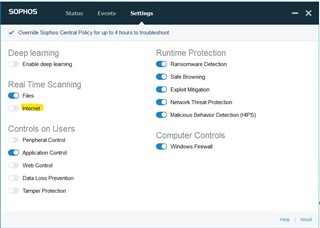So I've been pulling my hair out for the past month with internet slowness, High MS when pinging, and Resolving DNS. Ithink I found the issue and not sure how I could fix it. It turns out if I disable "Internet" within the Sophos Central menu every runs alot smoother. Does anyone else experience this? Is there a fix to this?
This thread was automatically locked due to age.




